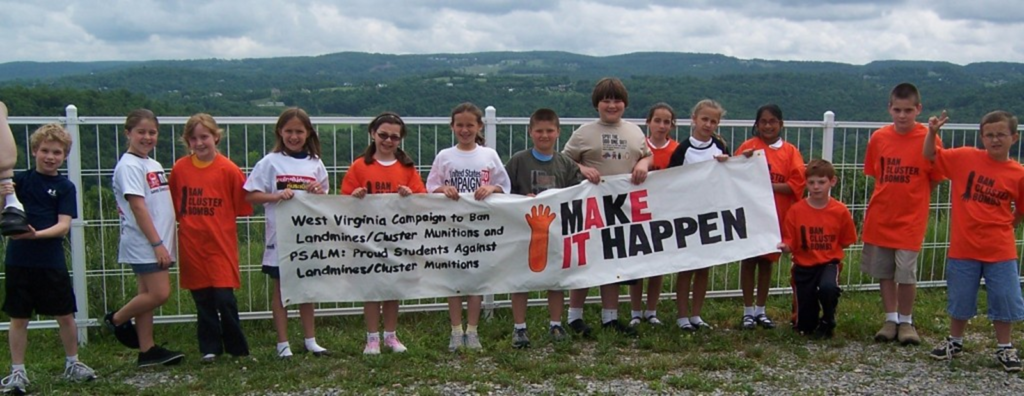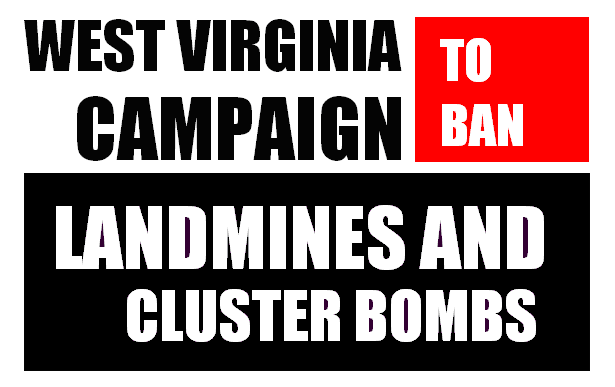
Geneva, 11 July 2024) Lithuania is set to withdraw from the 2008 Convention on Cluster Munitions despite the high humanitarian, legal, and political costs, said the Cluster Munition Coalition today. The Coalition strongly urges Lithuania’s Parliament to reject the proposal, emphasizing the grave implications of such a withdrawal.
“Leaving the international treaty banning cluster munitions sets a dangerous precedent for the convention and endangers the lives of civilians, including Lithuania’s own citizens, for decades to come,” said Tamar Gabelnick, Director of the Cluster Munition Coalition. “Lithuania’s decision sends a message to the world that international humanitarian law can be disregarded when national security concerns arise. Yet laws to protect civilians must be upheld at all times—during peace, heightened insecurity, and especially during war.”
Lithuania’s Minister of Defense began considering withdrawal from the Convention on Cluster Munitions after the United States started supplying Ukraine with cluster munitions in July 2023. By September of the same year, the Minister was advocating for Lithuania’s withdrawal from the convention. He recently submitted a draft law to the government, which was approved on 3 July 3 2024, and subsequently set in motion a rapid legislative process. The draft law is scheduled to be presented at the plenary meeting of the Parliament in the morning of 11 July 2024, and then referred to the Foreign Affairs Committee for consideration that afternoon. Following this, the draft and the Committee’s conclusions will be deliberated at the Parliament’s plenary meeting on July 16, with a final vote slated for 18 July.
The Convention on Cluster Munitions is a lifesaving instrument that comprehensively bans cluster munitions and requires the destruction of stockpiles, clearance of cluster munition remnants, and assistance to victims of the weapons. There have been no confirmed reports or allegations of new use, production, or transfers of cluster munitions by any state party since the convention was adopted in Dublin, Ireland on May 30, 2008.
“The primary victims of cluster bombs have always been civilians, especially children, farmers, and those seeking to earn a living from their land,” noted Raed Moqalled, the father of a 5-year-old cluster munition victim from Lebanon. “To those who signed the Convention on Cluster Munitions and now seek to withdraw, I say: treat the children of the world as you would treat your own.” Moqalled’s son, Ali, was tragically killed by a submunition in 1999 after picking up what he believed was a toy in a playground. Devastatingly, another child met a similar fate in the same area ten years later, underscoring the long-lasting danger these weapons pose to innocent civilians, particularly children.
By sending a signal that Lithuania considers use of these weapons to be acceptable, this withdrawal would be a highly regrettable step backwards for the convention and the global efforts to eradicate these indiscriminate weapons, said the Cluster Munition Coalition. It would also diminish Lithuania’s standing as a responsible member of the international community committed to protecting civilians.
Lithuania’s Defense Minister claims that restoring their right to use cluster munitions could help ward off feared Russian aggression, but according to th`e Cluster Munition Monitor, Lithuania has never used, produced, transferred or stockpiled cluster munitions. Lithuania and the other states that negotiated the Convention accepted that any perceived short-lived military benefit from cluster munitions would be far outweighed by the certain, long-lasting, and unacceptable harm they cause civilians.
As a weapon that spreads submunitions over a wide area the size of a football pitch, cluster munitions cannot distinguish between civilians and combatants. Their high dud rate means they leave behind a deadly legacy of explosive remnants including unexploded submunitions that pose a threat to communities for decades after conflicts end. According to the Cluster Munition Monitor, 95% of cluster munition victims during 2022 were civilians, of which 71% were children.`
To date, 124 states have joined the convention, including 24 NATO member states and 21 European Union member states. Lithuania’s decision would therefore put it at odds with many of its closest allies, who have been working behind the scenes to stop this move. Lithuania itself noted its strong support for the ban on cluster munitions when it negotiated and signed it in 2008.
“Lithuania’s planned withdrawal from the Convention on Cluster Munitions is an insult to all those who have been harmed by these hideous weapons,” said Gabelnick,“The CMC urges all countries that have banned cluster munitions to denounce Lithuania’s decision and urge Lithuania to stay in the convention.”

About Cluster Munitions
Cluster munitions can be fired from the ground by artillery, rockets, missiles, and mortar projectiles, or dropped by aircraft. They typically open in the air, dispersing multiple submunitions or bomblets over a wide area. Many submunitions fail to explode on initial impact, leaving duds that can indiscriminately injure and kill like landmines for years, until they are cleared and destroyed. More information is available on this link.

WVCBL/PSALM look to leaders in Lithuania’s parliament to reject the government proposal to withdraw from the 2008 treaty banning cluster munitions. PSALM students are particularly concerned about children who account for a hign amount of the civilian victims and will pose grave danger for years to come.

About the Coalition on Cluster Munition
The Cluster Munition Coalition (CMC) is a global civil society network operating in about 100 countries, working towards a world free of cluster munitions. Its primary goals are to promote universal adherence to the 2008 Convention on Cluster Munitions, change government policies, raise public awareness, and uphold the rights of cluster munition victims. The CMC advocates at national, regional, and international levels, bringing the perspectives of affected communities into diplomatic discussions. In 2011, it merged with the International Campaign to Ban Landmines, forming ICBL-CMC, and is supported by research from the Landmine and Cluster Munition Monitor.
www.icblcmc.org | www.the-monitor.org | @banclusterbombs | 2023 Cluster Munition Monitor
Contact
Charles Bechara (English, French, Arabic), Media and Communications Manager, Tel.: +41 78 323 51 44, media@icblcmc.org
Tamar Gabelnick (English, French), Director, Tel.: +41 78 976 7471; tamar@icblcmc.org
